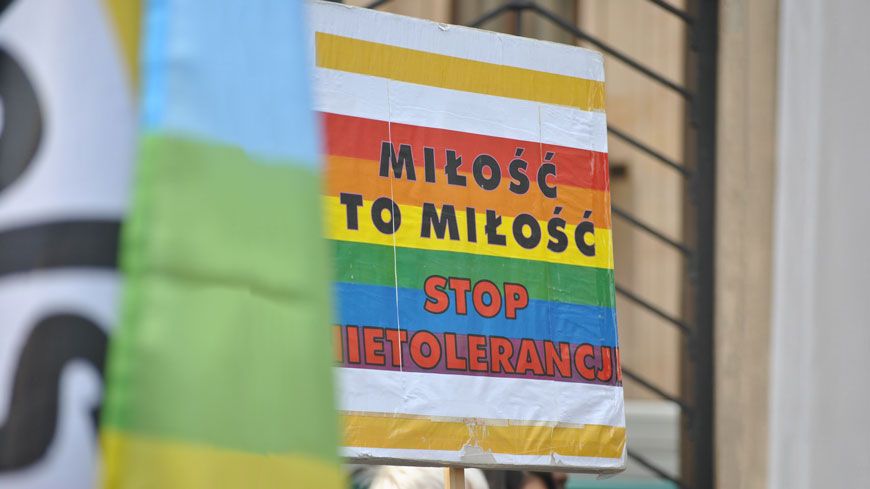“Public officials and opinion makers should stop promoting an atmosphere of hate and intolerance vis-à-vis LGBTI people and instead, improve respect for their human rights. Stigmatisation and hate speech carry a real risk of legitimising violence. LGBTI are people, not an ideology”, said the Council of Europe Commissioner for Human Rights, Dunja Mijatović, in a memorandum published today in which she calls on the Polish authorities to reverse the current negative trends targeting lesbian, gay, bisexual, transgender and intersex (LGBTI) people and activists in the country. The memorandum builds on the Commissioner’s work for the protection of the human rights of LGBTI people in Europe and follows online consultations with Polish authorities, national human rights structures and non-governmental organisations working on the rights of LGBTI people held between 12 and 23 October 2020.
The Commissioner is deeply concerned about the visible rise in hateful rhetoric and the propagation of homophobic narratives by public officials and by other prominent bodies and figures in society in Poland. “Hate and dehumanisation have an impact not just on victims but also on the well-being of the society. They send a signal of social exclusion and threaten social cohesion”, the Commissioner said. She strongly urges all public authorities, politicians and opinion leaders in Poland not to engage in hate speech or any discourse stigmatising LGBTI people, and to firmly denounce such actions and statements, including when they come from private parties. She further calls on Poland to ensure that hate speech and hate crime based on sexual orientation, gender identity and sex characteristics are properly punished in law and in practice, including by recognising bias motivated on these grounds as an aggravating circumstance for hate crimes.
The Commissioner was particularly disturbed by the adoption of anti-LGBT declarations and charters by many local governments and municipalities in Poland and by examples of public support for homophobic projects and initiatives. In her view, these actions send an extremely alarming signal of public approval for hate, intolerance and exclusion, effectively incentivising such behaviour. Emphasising that all people are equal and deserve to be treated as such, the Commissioner calls for the anti-LGBT declarations and charters to be revoked and urges the Polish government to ensure that initiatives which directly or indirectly promote hate and intolerance against LGBTI people do not receive public support. The Commissioner also calls for the rejection of several bills targeting LGBTI people which are currently pending in the Polish parliament.







Leave a Reply